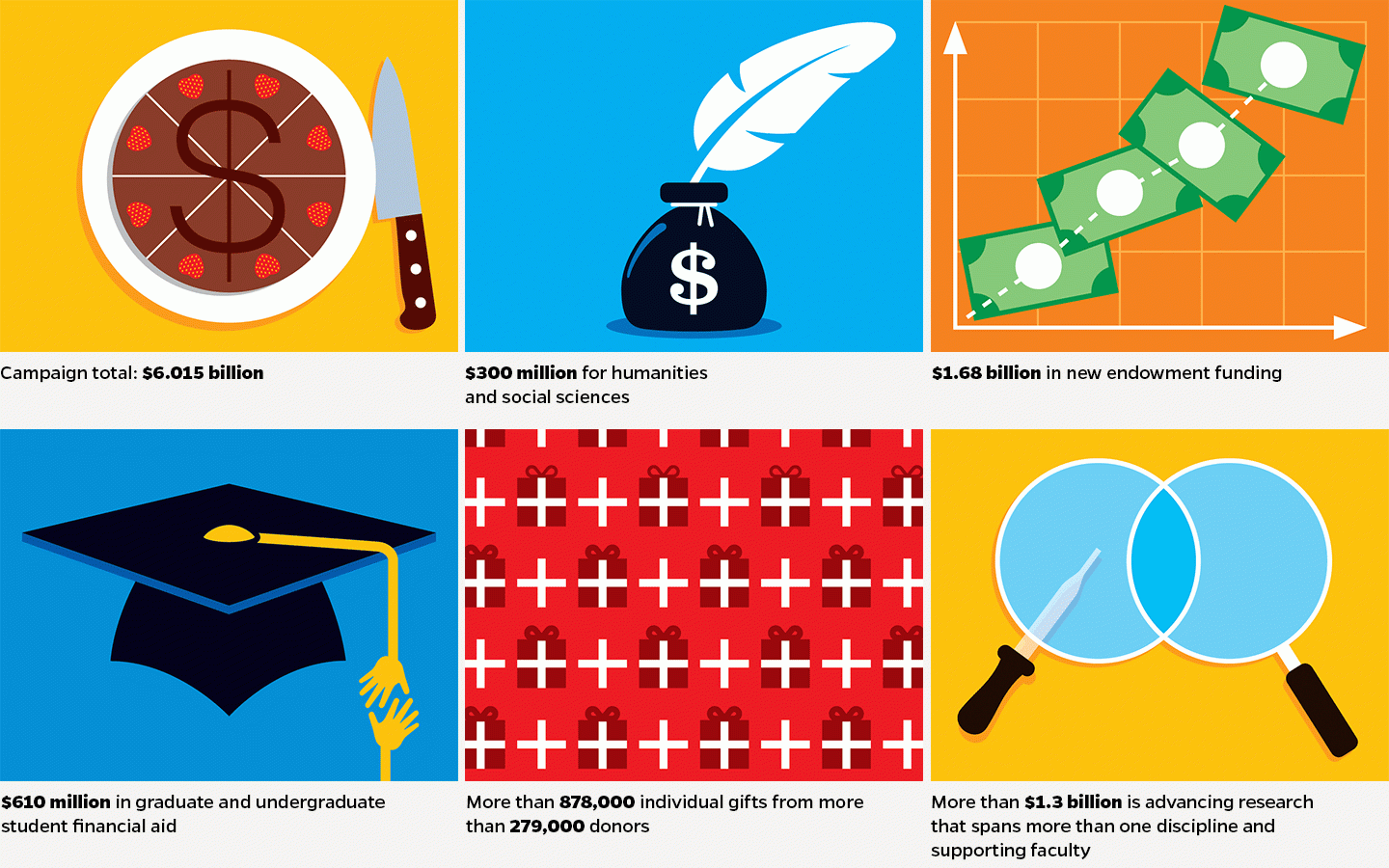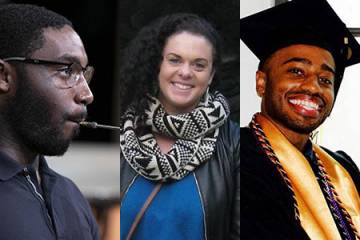In October, Johns Hopkins University celebrated the impact of the Rising to the Challenge campaign, which concluded with more than $6 billion of support for the mission of the university. Much of that sum will go to endowed scholarships and professorships, financial aid, and research—especially in medicine, sciences, and interdisciplinary endeavors. But among the campaign's achievements, one stands out—more than $300 million for social sciences and that oft-overlooked cornerstone of higher education, the humanities.
This unprecedented commitment comes at a time when, on a national scale, the humanities' role in the academic landscape has been called into question. Numerous reports point to declines in undergraduates declaring humanities majors, tenure-track faculty positions, and federal appropriations through the National Endowment for the Humanities. Meanwhile, as politicians call for "more welders, not philosophers," colleges note that parents tend to discourage their daughters' and sons' humanistic pursuits in favor of disciplines that they believe will better prepare them for the job market.

Image credit: Patrick George
But at Johns Hopkins, several generous donors have partnered with the university to ensure the long-term vitality of the humanities. Leading the way is a $75 million commitment to the Krieger School of Arts and Sciences Department of Philosophy from Bill Miller, a military veteran who pursued a degree in philosophy before becoming a Wall Street legend. "I attribute much of my business success to the analytical training and habits of mind that were developed when I was a graduate student at Johns Hopkins," says Miller, with intent to "move the department to its rightful place among the best in the country."
Many campaign objectives targeted interdisciplinary focus on "daunting global and societal challenges," in the words of President Ronald J. Daniels. One prominent initiative will require help from philosophy, ethics, and history. With a $150 million pledge, the Stavros Niarchos Foundation funded the SNF Agora Institute to advance our means of civil dialogue in a time of decreasing civility and increasing polarization. Taking its name from the ancient Greek cities' hubs of civic discussion, the institute will require "bringing together people from different traditions, experiences, and points of view to listen and learn from each other, and come to joint understandings that none could reach alone," explains Beverly Wendland, dean of the Krieger School.
A $10 million gift from the Alexander Grass Foundation will enhance interdisciplinary collaboration through the Alexander Grass Humanities Institute. While this pledge will create opportunities for faculty, students, and the public to explore the countless paths of humanistic discovery, it also reflects a singular, inarguable focus. "Really, the study of the humanities is at the basis of everything in life, and sometimes it gets short shrift," says Elizabeth Grass Weese, the daughter of the foundation's namesake and the mother of JHU students in writing and computer science.
Together, these and the many other commitments to the humanities affirm the reflections of President Daniels in a September op-ed published by The Washington Post. "As the world is transformed by artificial intelligence, machine learning, and automation," Daniels wrote, "the uniquely human qualities of creativity, imagination, discernment, and moral reasoning will be the ultimate coin of the realm. All these skills, as well as the ability to communicate clearly and persuasively, are honed in humanities."
Hail to the humanities and social sciences: A summary of support
William H. Miller III
$75 million for the Philosophy Department
To expand the full-time faculty from 13 to 22, endow a department chair and eight professorships, and endow support for junior faculty, graduate students, postdoctoral fellows, and new courses and programs to attract undergraduates to philosophy.
Stavros Niarchos Foundation
$150 million for the SNF Agora Institute
To construct a new facility on the Homewood campus and support a director, 10 core faculty members, and 10 annual visiting scholars, serving undergraduates, graduates, and the public alike—all to advance our means of civic dialogue.
Alexander Grass Foundation
$10 million for the Alexander Grass Humanities Institute
To support interdisciplinary research, visiting scholars, public speakers and events, graduate fellowships, and undergraduate research.
Andrew W. Mellon Foundation
$1.725 million for JHU and Community College of Baltimore County
To establish a partnership between the two schools that strengthens learning in the humanities, recruitment and retention, and connections between CCBC and JHU faculty.
Robert Hall, Engr '55
$2 million for the Nancy H. Hall Curatorship of Rare Books and Manuscripts at the Sheridan Libraries
To build and maintain world-class collections of early print and manuscript culture, teach courses, and create paths into the "digital humanities," all to understand what historical texts represent to original and modern audiences.
Jeffrey H. Aronson, A&S '80, and Shari L. Aronson
$10 million for the Aronson Center for International Studies
To create the Aronson Center for International Studies, which will promote closer ties between the university's graduate-level Johns Hopkins School of Advanced International Studies in Washington, D.C., and the undergraduate international studies program at the Krieger School of Arts and Sciences in Baltimore.
Posted in Arts+Culture, University News
Tagged philosophy, rising to the challenge, humanities, snf agora institute









